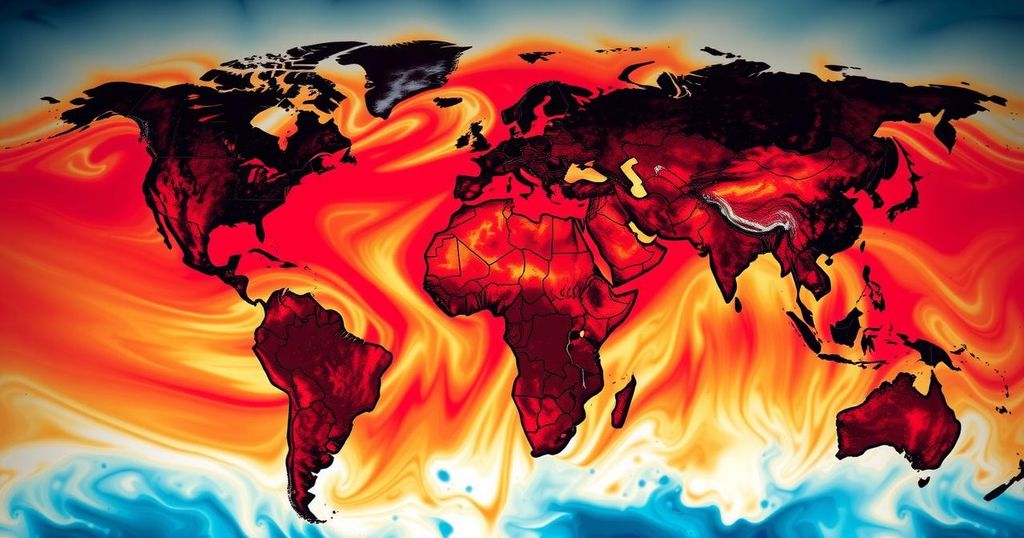Record Global Temperatures in 2024 Exceed 1.6 Degrees Celsius

In 2024, global temperatures reached an unprecedented 1.6 degrees Celsius above preindustrial levels, marking the hottest year since 1850. This spike in temperature has intensified various natural disasters, including wildfires in Los Angeles. The data highlights the urgent need to address human-induced carbon emissions to mitigate further climate impacts.
In 2024, global temperatures surged beyond preindustrial levels, reaching an alarming 1.6 degrees Celsius higher, marking the hottest year recorded since 1850. This occurs just as the UN’s Secretary-General António Guterres had cautioned that exceeding a 1.5 degrees Celsius rise would lead to dire consequences for the planet. The report by the European Union’s Copernicus Climate Change Service indicated the global average temperature was documented at 15.10 degrees Celsius, intensifying the ongoing climate crisis.
The repercussions of this unprecedented temperature rise are already evident, with catastrophic wildfires in Los Angeles causing widespread devastation and loss of life. As climate change exacerbates extreme weather events, various regions worldwide have reported increased severity of natural disasters, including droughts, hurricanes, and flooding. Samantha Burgess from the European Centre for Medium-Range Weather Forecasts highlighted the correlation between elevated temperatures and the frequency of climate-related disasters.
Notably, from 2015 to 2024, each year has been amongst the ten warmest on record. A significant high was reached on July 22, 2024, with the daily global average temperature recorded at 17.16 degrees Celsius. Moreover, warmest years were noted in all continental regions except Antarctica and Australasia. The primary drivers of this climate shift include human activities, predominantly linked to carbon emissions resulting from fossil fuel combustion.
Experts have emphasized that the continued reliance on fossil fuels, compounded by the energy demands of emerging technologies like artificial intelligence, complicates efforts to reduce greenhouse gas emissions effectively. This compounding issue highlights the urgent need for decisive and immediate action towards sustainable energy alternatives and climate mitigation strategies.
The subject of climate change represents a pivotal global crisis that has gained increasing attention over the past few decades. In 2015, the Paris Agreement established targets aimed at limiting global temperature rise, primarily to avoid surpassing the critical threshold of 1.5 degrees Celsius above preindustrial levels. Despite these efforts, developments in 2024 demonstrate the accelerating pace of climate change and its far-reaching impacts across the globe. The data revealed by the Copernicus Climate Change Service underscores the immediate effects that rising temperatures play on natural disasters and ecological stability, necessitating a reevaluation of current strategies for climate action.
In conclusion, the revelations regarding global temperature increases in 2024 serve as a sobering reminder of the urgent challenges posed by climate change. With human activities fueling the rise in temperatures, the frequency and intensity of climate-related disasters are manifested globally. As the world grapples with these changes, it becomes clear that immediate and remarkable actions are required to mitigate the effects of climate change and transition towards sustainable energy solutions.
Original Source: www.cnet.com






